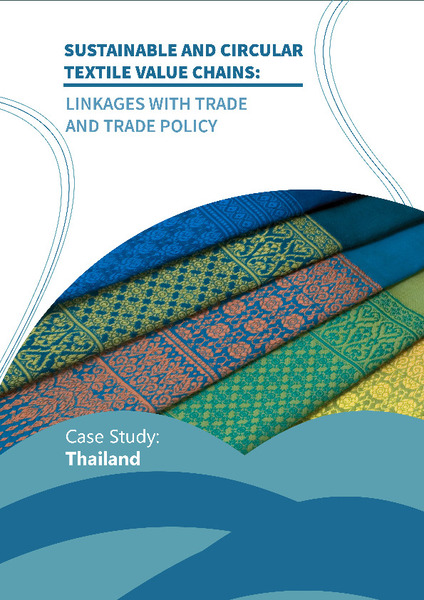| dc.contributor | Industry and Economy Division | en_US |
| dc.contributor.author | United Nations Environment Programme | en_US |
| dc.contributor.other | Zhang, Ying | en_US |
| dc.contributor.other | Vikitsreth, Pornphrom N. S. | en_US |
| dc.coverage.spatial | Thailand | en_US |
| dc.date.accessioned | 2023-03-10T16:44:46Z | |
| dc.date.available | 2023-03-10T16:44:46Z | |
| dc.date.issued | 2023-03 | |
| dc.identifier.uri | https://wedocs.unep.org/20.500.11822/42047 | |
| dc.description | This paper looks at environmental hotspots in textile value chains in Thailand and trade policy instruments that can have an impact on sustainability and circularity. It builds on UNEP’s work on environment and trade, and its framework for Sustainability and Circularity in the Textile Value Chain. Trade and trade policy have an important role to play in the transition towards a green and circular economy. Yet its potential has not yet been fully unlocked. | en_US |
| dc.format | pdf | en_US |
| dc.language | English | en_US |
| dc.rights | Public | en_US |
| dc.subject | textile industry | en_US |
| dc.subject | environmental aspect | en_US |
| dc.subject | wastewater pollution | en_US |
| dc.subject | fibre | en_US |
| dc.subject | trade policy | en_US |
| dc.subject | circular economy | en_US |
| dc.subject | trade agreement | en_US |
| dc.subject | trade financing | en_US |
| dc.subject | Thailand | en_US |
| dc.subject | textile | en_US |
| dc.title | Sustainable and Circular Textile Value Chains: Linkages with Trade and Trade Policy - Case Study: Thailand | en_US |
| wd.identifier.sdg | SDG 12 - Responsible Consumption and Production | en_US |





